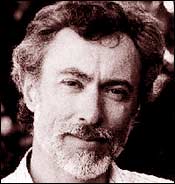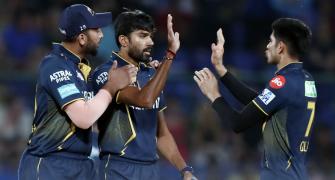The Swedish Academy on Thursday awarded the 2003 Nobel Prize in Literature to South African novelist John Maxwell Coetzee.
J M Coetzee started writing fiction in 1974. His international breakthrough came in 1980 with the novel Waiting for the Barbarians. He was awarded the Booker Prize in the United Kingdom for Life and Times of Michael K.
 After 'updating' Robinson Crusoe in the novel Foe, 1986, Coetzee returned to South Africa with Age of Iron, 1990.
After 'updating' Robinson Crusoe in the novel Foe, 1986, Coetzee returned to South Africa with Age of Iron, 1990.
In 1999 Coetzee became the first author to be twice awarded the Booker Prize, for his novel Disgrace, in which the plot, as in In the Heart of the Country, 1977, mainly takes place on a remote farm in South Africa.
A fundamental theme in Coetzee's novels involves the values and conduct resulting from South Africa's apartheid system, which, in his view, could arise anywhere.
His earliest novel, Dusklands, was the first example of the capacity for empathy that enabled Coetzee time and again to creep beneath the skin of the alien and the abhorrent. A man working for the American administration during the Vietnam War dreams of devising an unbeatable system of psychological warfare, while at the same time his private life disintegrates around him. His reflections are juxtaposed with a report on an expedition to explore the country of the native Africans, which purports to have been written by one of the 18th-century Boer pioneers. Two forms of misanthropy, one of them intellectual and megalomaniac, the other vital and barbaric, reflect each other.
One element in his next novel, In the Heart of the Country, is the portrayal of psychosis. A careworn spinster living with her father observes with distaste his love affair with a young coloured woman. She has fantasies of murdering both of them, but everything seems to indicate that she decides rather to immure herself in a perverse pact with the house servant. The actual sequence of events cannot be determined, as the reader's only sources are her notes, where lies and truths, crudeness and refinement alternate capriciously line by line. The high-flown Edwardian literary style of the woman's monologue harmonises strangely with the surrounding African landscape.
Waiting for the Barbarians is a political thriller in the tradition of Joseph Conrad, in which the idealist's naivety opens the gates to horror.
The playful metanovel Foe spins a yarn about the incompatibility and inseparability of literature and life, told by a woman who yearns to be part of a major narrative when in reality only one of minor importance is offered.
With Life and Times of Michael K, which has its roots in Defoe as well as in Kafka and Beckett, the impression that Coetzee is a writer of solitude becomes clearer. The novel deals with the flight of an insignificant citizen from growing disorder and impending war to a state of indifference to all needs and speechlessness that negates the logic of power.
The Master of Petersburg is a paraphrase of Dostoevsky's life and fictional world. To die in one's heart away from the world, the temptation that Coetzee's imagined characters face, turns out to be the principle of the unconscionable liberty of terrorism. Here, the writer's struggle with the problem of evil is tinged with demonology, an element that recurs in his most recently published work, Elizabeth Costello.
In Disgrace Coetzee involves readers in the struggle of a discredited university teacher to defend his own and his daughter's honour in the new circumstances that have arisen in South Africa after the collapse of white supremacy. The novel deals with a question that is central to his works: Is it possible to evade history?
His autobiographical Boyhood circles mainly around his father's humiliation and the psychological cleavage it has caused the son, but the book also conveys a magic impression of life in the old-fashioned South African countryside with its eternal conflicts between the Boers and the English and between white and black. In its sequel, Youth, the writer dissects himself as a young man with a cruelty that is oddly consoling for anyone able to identify with him.
There is a great wealth of variety in Coetzee's works. No two books ever follow the same recipe. Extensive reading reveals a recurring pattern, the downward spiralling journeys he considers necessary for the salvation of his characters. His protagonists are overwhelmed by the urge to sink but paradoxically derive strength from being stripped of all external dignity.
ALSO READ
The reluctant guest of honour: Extract from Elizabeth Costello








